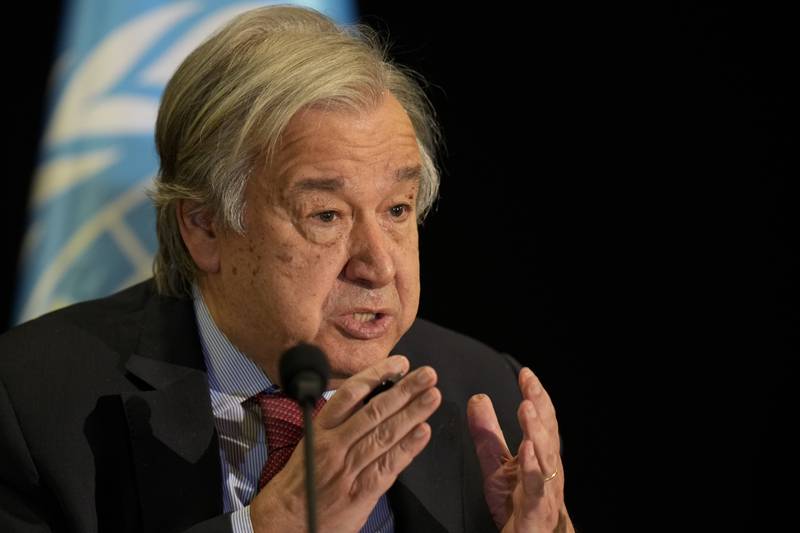
Lebanon’s financial collapse was caused by “something similar to a Ponzi scheme”, UN Secretary General Antonio Guterres said in videotaped comments made during a closed-door meeting on his visit to Beirut this week.
Lebanon is in the third year of an economic meltdown that began in 2019 when the financial system collapsed under the weight of huge state debt — the result of decades of corruption and mismanagement — and the unsustainable way it was financed.
Critics of the Lebanese authorities have compared the financial system to a Ponzi scheme, depending on fresh borrowing to pay back existing debt. The central bank has denied this.
“As far as I understand, what has happened in Lebanon is that Lebanon was using something similar to a Ponzi scheme … which means that together with of course corruption and other, probably, forms of stealing, the financial system has collapsed,” Mr Guterres said in the video, which was circulated widely on social media.
The crash has caused the Lebanese pound to lose more than 95 per cent of its value and people have been frozen out of their deposits in the paralysed banking system.

Mike Azar, an expert on the Lebanese financial system who attended the meeting, confirmed Mr Guterres made the remarks at the closed-door gathering between the UN chief and members of Lebanese civil society on Tuesday.
Mr Azar, a former professor of economics at Johns Hopkins University in the US, said Mr Guterres made the comments in response to a statement he had made.
Asked by Reuters about the remarks, a UN representative said the secretary general’s views on the financial crisis were “more fully expressed” at a news conference at the end of his visit.
At that news conference, Mr Guterres said Lebanese leaders needed to convince the international community to support Lebanon by enacting reforms “in relation to the economic, the social and the political life of the country” and by adopting a “credible economic recovery plan” for talks for an International Monetary Fund support programme.
The National

Leave a Reply
You must be logged in to post a comment.